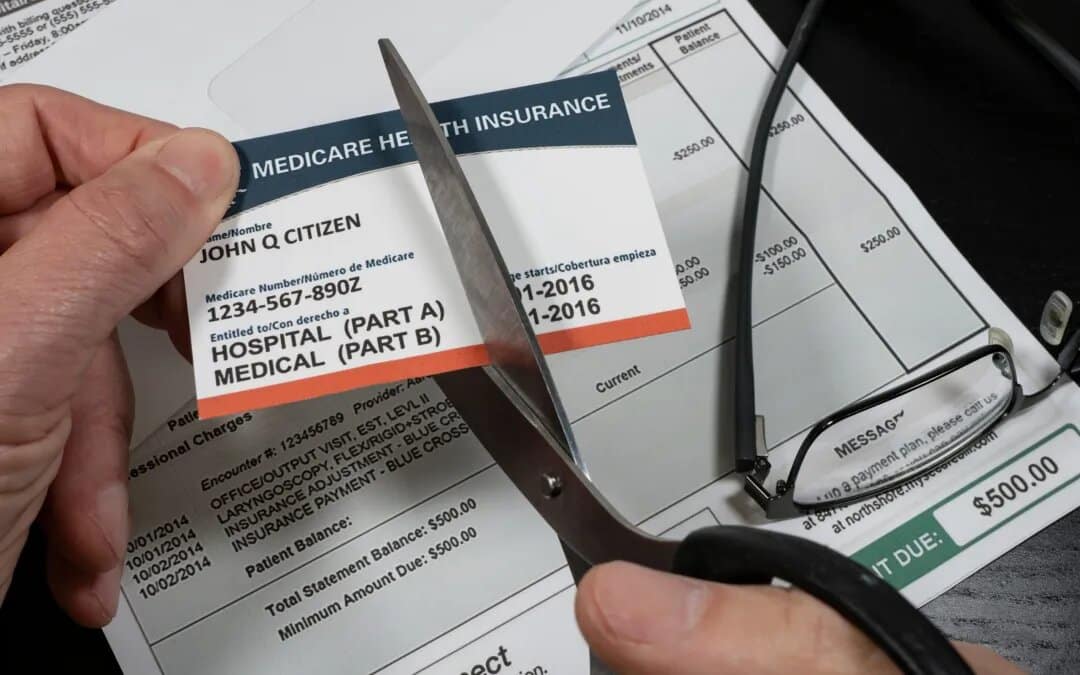Conservatives have done the United States a huge favor by explaining in detail what they’ll try to do if Donald Trump is reelected.
Project 2025, a “presidential transition project” of the Heritage Foundation, helpfully lays out how a group of former Trump officials would like to transform the country into a right-wing dystopia where the rich thrive and the rest of us die aspiring to be rich.
Declaring in its Mandate for Leadership that “unaccountable federal spending is the secret lifeblood of the Great Awokening” (really!), the plan focuses heavily on reversing social progress on the rights of racial and sexual minorities.
It also promises to decimate the most popular benefits programs in the U.S.: Medicare and Medicaid.
In a section dedicated to the Department of Health and Human Services, Project 2025 declares that “HHS is home to Medicare and Medicaid, the principal drivers of our $31 trillion national debt.”
This is a popular conservative framing used to justify ending social programs. In fact, per person Medicare spending has plateaued for more than a decade and represents one of the greatest reductions to the federal debt.
While admitting that Medicare and Medicaid “help many,” the authors of Project 2025 nonetheless declare that the programs “operate as runaway entitlements that stifle medical innovation, encourage fraud, and impede cost containment, in addition to which their fiscal future is in peril.”
To solve these imaginary problems, they suggest making “Medicare Advantage the default enrollment option” rather than traditional Medicare.
But Medicare Advantage (MA) is not a government-run healthcare program. It’s merely a way to turn tax dollars into profits for private health insurers. The more that MA providers deny coverage, the more money their shareholders make. There is no incentive for them to cover the health care needs of seniors.
There is plenty of evidence that MA programs not only fleece taxpayers by submitting inflated reimbursement bills to the government but also routinely deny necessary medical coverage.
In other words, they’re drinking out of both sides of the government trough.
The Center for Economic and Policy Research pointed out in a March 2024 paper that the “insurance companies that run these MA plans spend significant sums of money to blanket seniors with marketing” while relying on “heavily restricted networks that damage one’s choice of provider along with dangerous delays and denials of necessary care.”
But Project 2025 claims, without evidence, that “the MA program has been registering consistently high marks for superior performance in delivering high-quality care.”
Medicaid, the government program that covers health care for the lowest-income Americans, including millions of children, is also a major target of the conservative authors.
They want to add work requirements to the benefit, adopting the familiar conservative trope of low-income Americans living off tax dollars because they’re too lazy to work. And like the MA programs, they want to allow private insurers to get in on the game.
Calling Medicaid a “cumbersome, complicated, and unaffordable burden on nearly every state,” Project 2025 complains about the program’s increased eligibility while at the same time claiming to care about how it impacts “those who are most in need.”
But a June 2024 report by the Center on Budget and Policy Priorities concludes that Medicaid’s expanded eligibility rules have helped insure millions of Americans who would otherwise be uninsured and saved money in state budgets.
Most encouragingly, “the people who gained coverage have grown healthier and more financially secure, while long-standing racial inequities in health outcomes, coverage, and access to care have shrunk.”
Project 2025 claims to have the underlying ideology to “incentivize personal responsibility,” as if its authors simply want Americans to begin acting like responsible grownups. But they mysteriously don’t apply this same standard to wealthy elites — perhaps because that’s precisely who they are.
This op-ed was distributed by OtherWords.org.







